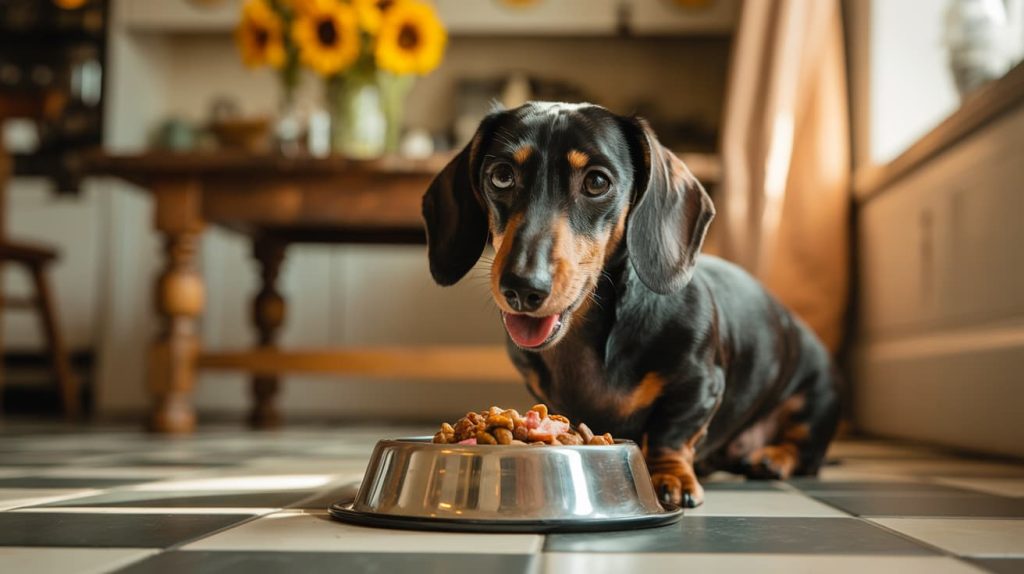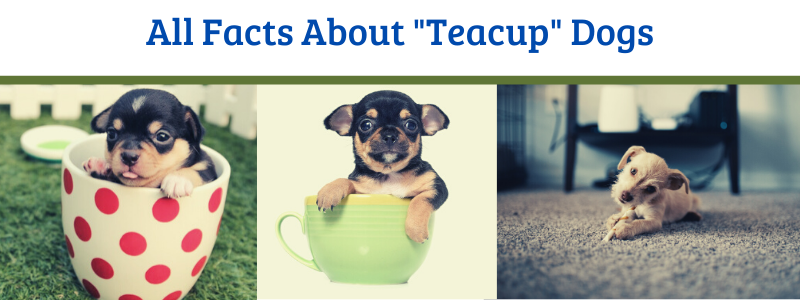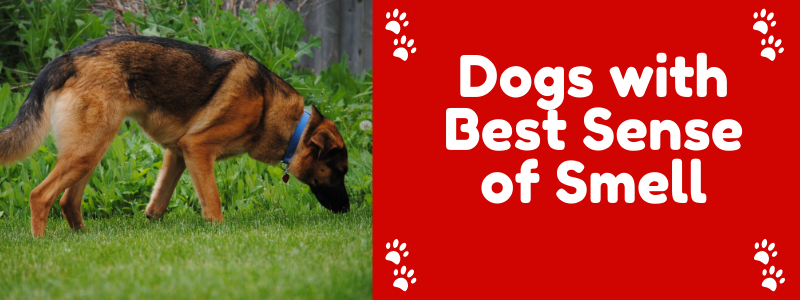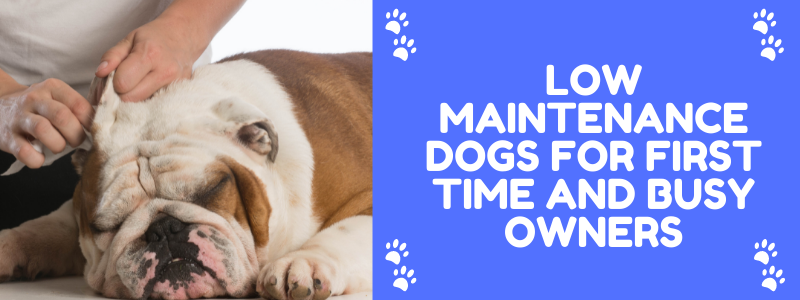The Dachshund, with its charming long body and short legs, is full of personality — and just like their big attitude, their nutrition needs special attention too. Whether you’ve got a playful puppy or a senior snuggle buddy, understanding your Dachshund’s diet is key to keeping them healthy, active, and full of life.
In this guide, we’ll walk through everything you need to know about feeding your Dachshund — from choosing the right food to managing portion sizes, treats, and special dietary needs.
🦴 1. Why Proper Nutrition Matters for Dachshunds
Because of their long spine and short frame, Dachshunds are prone to back problems like intervertebral disc disease (IVDD). Keeping them at a healthy weight is absolutely crucial.
A balanced diet not only maintains their ideal weight but also supports strong muscles, shiny coats, and good digestion. Overfeeding — or giving the wrong food — can quickly lead to obesity, which puts extra stress on their delicate back and joints.
💡 Key Tip: A well-fed Dachshund is an energetic one — not sluggish or constantly begging for more food.
🐕🦺 2. Understanding Your Dachshund’s Nutritional Needs
Every dog needs the right mix of protein, fat, carbohydrates, vitamins, and minerals. But Dachshunds have a few unique requirements:
- Protein: Supports lean muscle and keeps energy levels steady. Look for meats like chicken, beef, or fish as the first ingredient.
- Healthy Fats: Essential for coat health and brain development. Sources like salmon oil and flaxseed are great choices.
- Fiber: Helps regulate digestion and maintain a healthy weight.
- Calcium & Phosphorus: Strengthen bones and joints — especially important for their long spine.
🐾 Balanced meals = stronger back, shinier coat, and a happier pup.
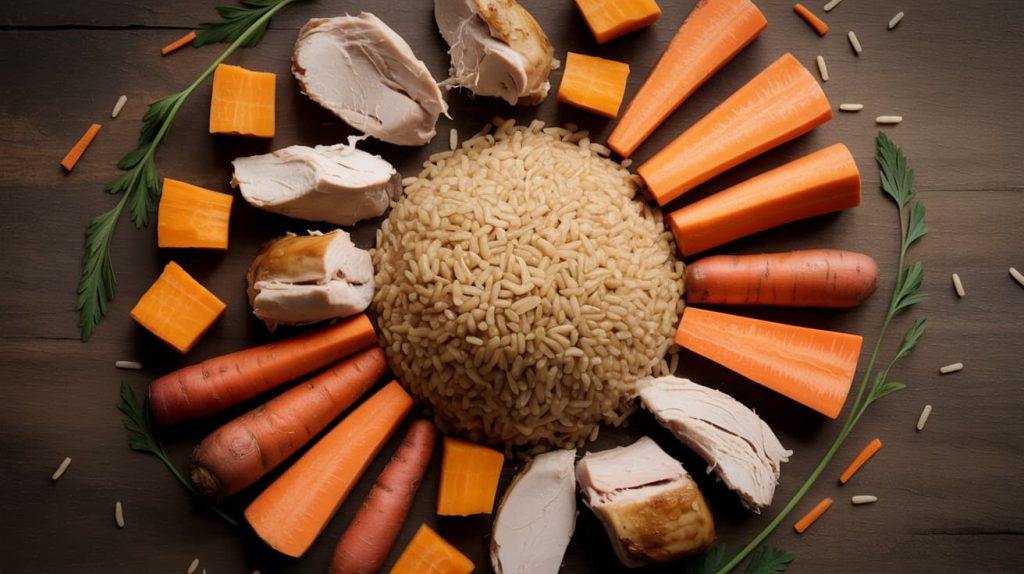
🍼 3. Feeding Dachshund Puppies
Puppies grow fast and need more calories per pound than adults.
- Choose puppy-specific food formulated for small breeds.
- Feed them 3–4 small meals per day until they’re about 6 months old.
- Avoid overfeeding — chubby puppies often grow into overweight adults.
⭐ Bonus Tip: Look for DHA and omega-3s to support brain and eye development during their early months.
🍽️ 4. Feeding Adult Dachshunds
Adult Dachshunds (1–7 years) need a steady, portion-controlled diet to maintain energy and avoid excess fat.
- Feed twice daily — morning and evening.
- Choose small-breed dog food that’s high in protein and low in fillers like corn or soy.
- Check the feeding guidelines on your dog food bag, but always adjust based on your pup’s activity level and metabolism.
🐕 If your Dachshund gets daily walks or playtime, they’ll need a bit more fuel than a couch-loving pup.
👴 5. Feeding Senior Dachshunds
Older Dachshunds slow down, meaning fewer calories are needed — but nutrient density matters more than ever.
- Choose a senior formula rich in antioxidants, glucosamine, and chondroitin for joint support.
- Keep fat content moderate to avoid weight gain.
- Add soft or wet food if dental issues make chewing difficult.
💗 Tip: Regular vet checkups help ensure your senior Dachshund’s diet stays right for their age and health condition.
🥩 6. Wet Food vs. Dry Food — Which Is Better?
Both have benefits, and many Dachshunds enjoy a mix of both:
- Dry kibble helps clean teeth and is easy to portion.
- Wet food adds hydration and flavor for picky eaters.
A good compromise?
👉 Mix a spoonful of wet food into dry kibble for taste, moisture, and texture variety.
Always look for high-quality brands with real meat as the first ingredient — and avoid anything full of artificial colors or fillers.

🍠 7. Safe Human Foods for Dachshunds
You can occasionally share your snacks — as long as they’re dog-safe!
✅ Safe options include:
- Cooked chicken or turkey (plain)
- Carrots and green beans
- Sweet potatoes
- Pumpkin puree (great for digestion)
- Blueberries and apple slices (no seeds)
❌ Avoid:
- Chocolate, grapes, onions, garlic, or avocado
- Anything salty, spicy, or heavily seasoned
🐾 Treats should make up less than 10% of daily calories.
⚖️ 8. Portion Control and Avoiding Obesity
Because of their small size, Dachshunds can gain weight quickly — sometimes without you realizing it!
- Measure every meal with a cup or scale instead of free-feeding.
- Monitor body shape: your Dachshund should have a slight waist when viewed from above.
- Ask your vet for your dog’s ideal weight range — and check it regularly.
💡 Remember: even a few extra pounds can put stress on their spine.
💧 9. Hydration Matters Too!
It’s not just about food — fresh water is vital. Dachshunds can get dehydrated easily, especially in warm weather.
Keep water bowls clean and always available. If your pup doesn’t drink enough, add water or low-sodium broth to their meals for a hydration boost.
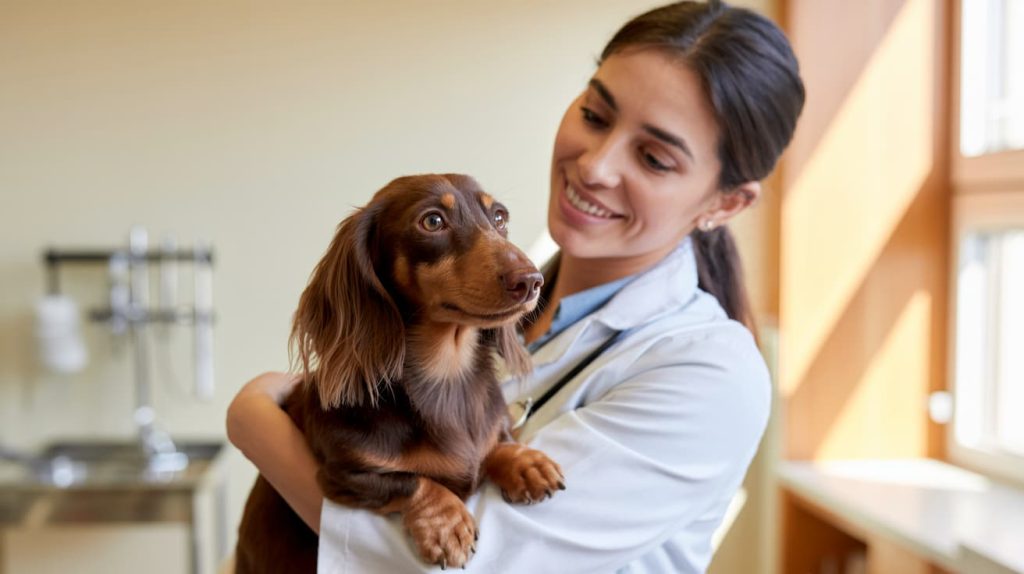
🍪 10. Healthy Treats and Snacks
Treats are excellent training motivators — but moderation is key.
Choose low-calorie treats or make your own with dog-safe ingredients like oats, banana, and peanut butter.
Or, try healthy alternatives like:
- Small carrot sticks
- Apple chunks
- Freeze-dried meat bites
🦴 Rule of thumb: Treats should complement, not replace, regular meals.
💗 Final Thoughts
Your Dachshund’s diet isn’t just about keeping them full — it’s about keeping them strong, balanced, and happy. With high-quality food, consistent portions, and the right nutrients, your long-bodied friend will thrive for years to come.
Every dog is unique, so keep an eye on your pup’s energy levels, coat shine, and body shape — they’re the best indicators that you’re feeding them right.
A well-fed Dachshund is not only healthy but also full of that classic, tail-wagging charm that makes them truly irresistible. 🐶✨

